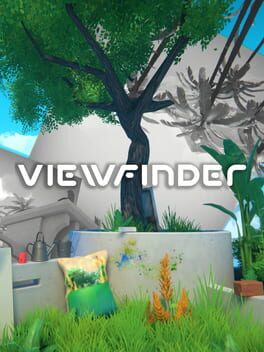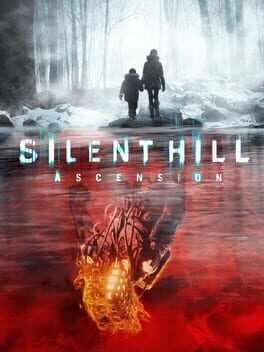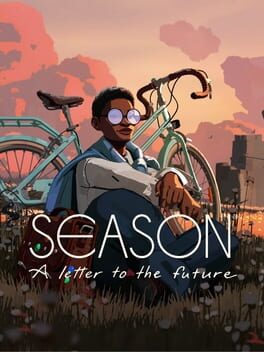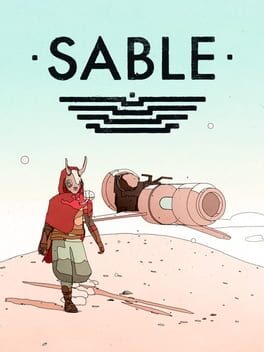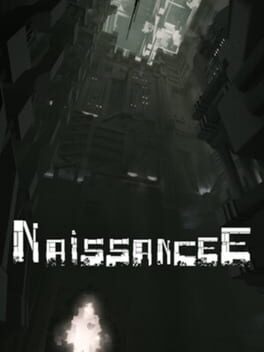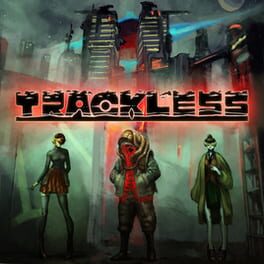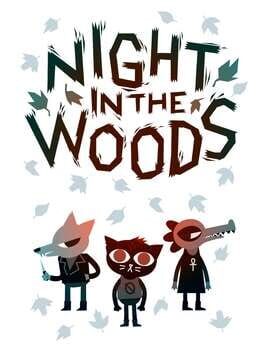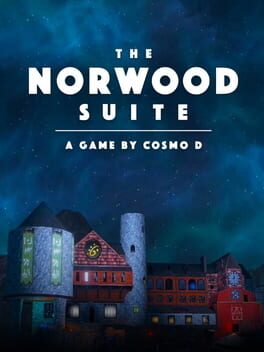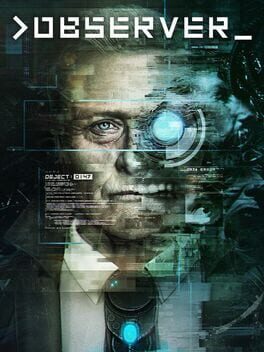sher_holder
2023
A very good puzzle game hinging on a gimmick that almost reaches Portal Gun levels of ingenuity. Unfortunately, the Portal comparisons don't end there. I wish someone would assure game developers that not all first-person puzzlers need some screwy narrative to guide players.
A camera that physicalizes photos in 3D space is a big enough draw. The amateurish voice acting and environmental doomsday scenario just distract from the core experience, and draw the game out longer than it needed to be.
A camera that physicalizes photos in 3D space is a big enough draw. The amateurish voice acting and environmental doomsday scenario just distract from the core experience, and draw the game out longer than it needed to be.
1999
If you want a horror game about teenagers in school with clear Silent Hill inspiration, then play Detention instead.
For a freebie, this walking sim has some lovely art, sound design (minus the voice acting), and an intriguing setting, but its narrative focus stumbles due to clumsy writing and an overbearing narrator. Ultimately, this feels more like an after school special with some Silent Hill vibes and aesthetic markers thrown in.
For a freebie, this walking sim has some lovely art, sound design (minus the voice acting), and an intriguing setting, but its narrative focus stumbles due to clumsy writing and an overbearing narrator. Ultimately, this feels more like an after school special with some Silent Hill vibes and aesthetic markers thrown in.
A game about journaling. Unfortunately, the exquisite visuals and sound design are let down by the writing and voice acting. It just feels kind of...on the nose, and ultimately, the odd pacing and lackluster writing take a meditative experience and make it a game that I can only recommend to fans of the exploration game genre.
2021
If only this game ran decently on PS5, I'm almost certain I'd love it. The graphics, writing, and world all seem excellent, but the performance disrupts all of that in a way that makes me feel nauseated. Maybe one day I'll be able to return, but it seems like the small dev team isn't going to be patching this anytime soon.
2014
2017
a lo-fi futurist walking sim. a cyberpunk game that questions what (or if) we value spiritually. a phone theme collector. strictly speaking, in trackless you'll be interacting with your environment, typing verbs, or, in some instances, answering quizzes, in order to progress. but this mechanic is tightly wrapped in a slick mobile phone GUI and presented in a world that is simultaneously alien and eerily familiar. this game isn't perfect. like the text-based games it draws inspiration from, there are some frustrating moments in trackless where progress is limited by vocabulary. luckily, in this always-online generation, these frustrations are mitigated by keeping a browser alt-tabbed. all in all, i found trackless to be another interesting experiment in the larger first person exploration genre, with a place, visual style, and identity all it's own.
2017
Far From Noise is a conversation I needed to have. George Batchelor’s games can more easily be described as conversation simulators, scenes in which the nuance of dialogue is picked and prodded at. In Far From Noise, that conversation is found in the most precarious of places, trapped in a punch buggy as it teeters on the side of a cliff face. The game manages its own deft balancing act, providing straight shots of naturalist philosophy while couching it in this wilder, existential comedy. It’s funny, it’s beautiful, and it has a soaring score that creeps up when you least expect it. For a brief 90 minute experience, the game is enormously enriching.
2017
2017
Night in the Woods made me relive the worst years of my life and I loved it. I wasted two years at the University of Pittsburgh before the marijuana faded away and all I had to show for it was a streak of black outs and insurmountable student debt. Those hazy memories bias me to more closely relate to a protagonist as deeply flawed and, at times, unlikeable as Mae Borowski. But, even without history coloring my experience, the writing from Infinite Fall's Bethany Hockenberry and Scott Benson imbues its world with tremendous empathy and slice-of-life details rarely seen in video games. It deserves to stand alongside works from other media like Bojack Horseman, Scott Pilgrim, and Ghost World--places where the surreality of the world masks our deepest wants, hopes, and fears. Never before has a game so clearly spoken to me personally and spoken for me generationally.
2017
The Norwood Suite brought me new discoveries with every room. With his free-to-play 2015 release, Off-Peak, NYC musician and developer Cosmo D brought his electric, off-the-cuff style of jazz to game space. That energy is focused and brought to life in new ways in The Norwood Suite, one of the best first-person experience games(walking sim, if you prefer) since 2015's The Beginner's Guide. Strictly speaking, you progress through the game by performing menial tasks for the clientele and staff at The Norwood Suite, a demented hotel tucked among the evergreens in the rural sprawl around NYC. But the game’s charm lies in the setting and characters, a storied hotel with intrigue, Dadaist absurdity, and architecture that gleefully folds in on itself. The story goes...places, but it's the music that will constantly nip at your heels (literally, the music always manifests in the world through speakers peppering the estate), guiding you from hall to hall in a world where internet modems have eyes, voices are interpreted as freeform instrumentals, and Red Bull has taken over the world. It's the best world to get lost in, where musical and visual discovery await at every turn.
2017
Observer made me afraid to ring the buzzer. Who would’ve thought some of the best moments in gaming would be found interrogating tenants in a dingy Krakow apartment building? Poland’s blooberteam clearly researched the classics when refining their cyberpunk world. The developer’s most ingenious trick gives in-game justification for their occasional jump scares and catalogue of post-processing effects. Whereas their previous game, Layers of Fear, leaned on these tricks to its detriment, Observer earns these moments without revealing whether its a misfired synapse or the malfunctions of a cybernetic body.
2017
In literature, Jorge Luis Borges' Library of Babel is an imagined space where all the books and all the possible books are stacked on shelves in an endless library. The Library's infinite corridors are better realized in ECHO, set on a dormant planet where each interior is a part of an impossibly large Victorian palace. As En, you find yourself sneaking, running, and shooting your way through an army of clones that learn and adapt from your every action. The mechanics cleverly force you out of your comfort zone, living as an improvisational survivalist. Do I shoot and let my clones learn how to aim? Or do I sneak silently, hoping I can avoid them better than they can avoid me? ECHO, on all fronts, felt refreshing.
One of the main criticisms levied against walking simulators is that movement is slow, boring, unengaging - and, to be fair, it often is. It's a genre more pivoted towards patiently taking in your surroundings. Bokida tries something different, merging lite physics-based puzzles with astounding minimalistic visuals and audio that draws heavily from the Yin Yang creation myth. But the highlight is that movement system. Once you get a hang of its intricacies, you'll be able to soar, glide, and leap your way across the vast, open island.
